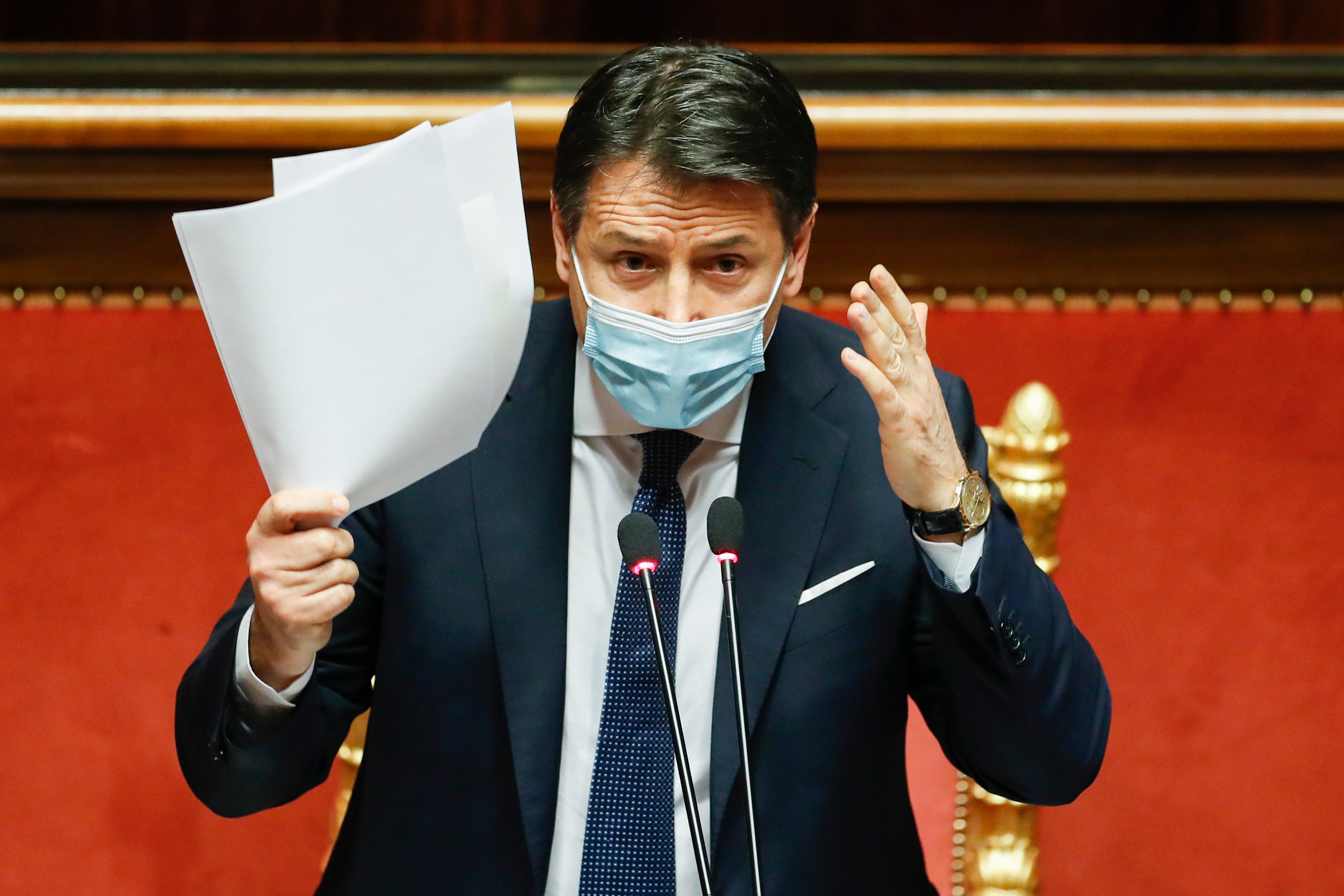Italian government survives crucial Senate confidence vote
Mr Conte told the Senate before the vote that he wanted ‘only pro-Europeans in the majority’

Your support helps us to tell the story
From reproductive rights to climate change to Big Tech, The Independent is on the ground when the story is developing. Whether it's investigating the financials of Elon Musk's pro-Trump PAC or producing our latest documentary, 'The A Word', which shines a light on the American women fighting for reproductive rights, we know how important it is to parse out the facts from the messaging.
At such a critical moment in US history, we need reporters on the ground. Your donation allows us to keep sending journalists to speak to both sides of the story.
The Independent is trusted by Americans across the entire political spectrum. And unlike many other quality news outlets, we choose not to lock Americans out of our reporting and analysis with paywalls. We believe quality journalism should be available to everyone, paid for by those who can afford it.
Your support makes all the difference.The Italian senate endorsed Giuseppe Conte’s coalition government on Tuesday in a vote of confidence, in a crucial vote for the prime minister but that nevertheless fell short of securing an absolute majority.
The Italian government has been threatening to collapse for the past week since former premier Matteo Renzi withdrew his Italia Viva (IV) party from the coalition over disagreements relating to the pandemic.
Mr Renzi’s main complaint was how Mr Conte planned to spend €209 billion (£186 billion) of EU Covid recovery funds. Mr Renzi wants them to be used in the digital economy and on green energy, whereas Mr Conte plans to let technocrats, not MPs, decide how the money is distributed.
Mr Renzi also said Mr Conte should accept up to €36 billion (£32 billion) offered for the health system by a separate eurozone fund. Mr Renzi is yet to do so amid fears that the money may be accompanied by unwelcome conditions.
The former prime minister accused Mr Conte of “squandering public money,” saying that in the current health and economic crisis, Italy “needs a stronger government.” He added that it was “now or never, the future is now, not in three months time.”
Senators voted 156 to 140 in support of Mr Conte’s government. An additional 16 senators abstained from the vote, these were made up of members of the IV party. In contrast, two senators of Forza Italia broke with the opposition and voted to support Mr Conte.
The Italian prime minister managed to keep his government afloat by first winning a confidence vote, Monday, in the Chamber of Deputies by 321 to 259. This has meant that the remaining two parties of his coalition, the Democratic Party (PD) and the Five Stars Movement (M5S), currently have a majority there.
Moments before the vote Tuesday, the prime minister addressed the Senate saying that he hoped there would be “only pro-Europeans in the majority” and that he wished to say “no to nationalists and those with sovereignist aspirations.”
Right-wing opposition parties including Silvio Berlusconi’s Forza Italia, Matteo Salvini’s Lega and Georgia Meloni’s Fratelli d’Italia, do not believe that Mr Conte will be able to govern for long. They announced Tuesday that they were “at work to build the alternative." The opposition has even gone as far as to say they plan on asking President Sergio Mattarella to intervene and force Mr Conte to resign.
In the short term however, Mr Conte’s future as prime minister doesn't seem to be threatened, according to confidence votes in both chambers.
Minority governments are not unusual in Italy where there have been 29 prime ministers and 66 governments since 1945. Indeed Mr Conte was previously in government with M5S and the Lega party before the latest coalition.
Increased economic instability, due to the pandemic, has meant that the current political crisis may be particularly challenging to navigate out of. Mr Conte warned senators that “a government crisis is putting the future of our children at risk.”
The Italian prime minister now faces a tough challenge to revive the Italian economy which has been ravaged by the pandemic, with several Italian regions still in lockdown.



Join our commenting forum
Join thought-provoking conversations, follow other Independent readers and see their replies
Comments